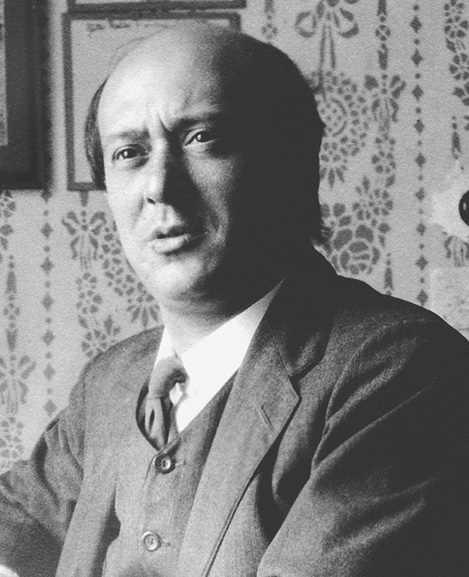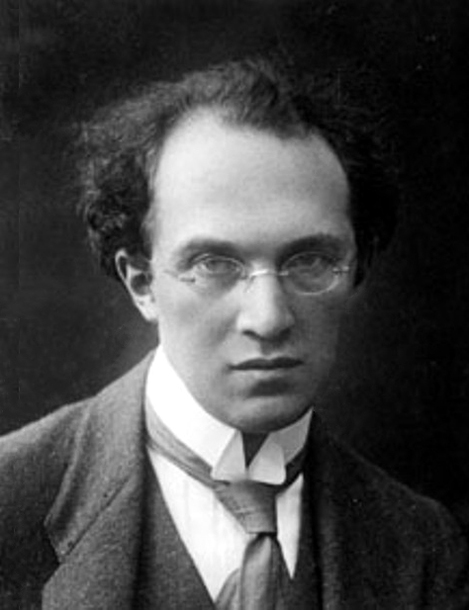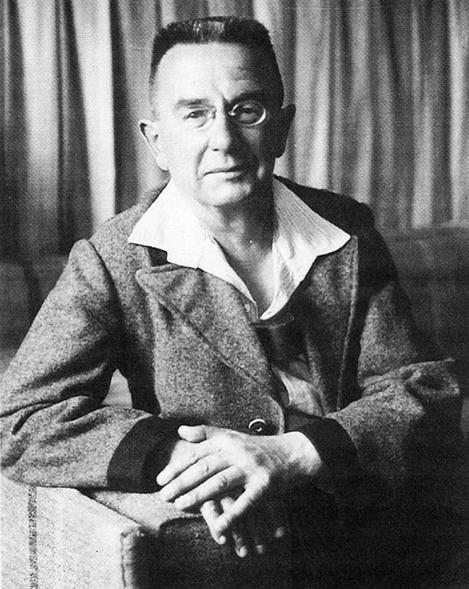A breath of fresh air - Schönberg only for externalists
With the generational change at the turn of the century and after the nationalisation of the now k.k. Academy of Music and Performing Arts in 1909, according to internal minutes, "a certain sterility in our composition classes" was lamented: "For as capable and excellent men of their kind as the teachers in question are, one thing [is] certain, they have not trained pupils."3 In search for new impulses in this context, despite all conservative tendencies, a teaching position for the then up-and-coming Arnold Schönberg was considered. An idea which, of course, met with opposition: although the composer, who was battling considerable resistance, was ultimately denied a professorship, he was at least authorised to hold a composition course for external private students. Schönberg's pedagogical ambitions went beyond this, however, so that when he was offered a professorship in Berlin in 1911, he moved his course there and thus ended his teaching activities at the Vienna Academy of Music.
The fierce, sometimes acrimonious discussions about the development of new music at the academy during this politically explosive time can be seen in the statements made by Professor of Music History Robert Lach, who stated with regard to the "moist-eared Schönberg and Schrecker disciples [sic]":
"Diese ‚atonalen‘ Neuntödter der Melodie, des Tonsystems, der gesamten Fundamente unserer Musik, alle diese musikalischen Herostrate, an denen nichts auffällig ist als ihr gänzlicher Mangel an Begabung und ihre Erfindungs- sowie Gedankensterilität, die nur von der Präpotenz und Anmaßung ihres Auftretens übertroffen wird, – sie alle sind nur auf dem Gebiete der Musik das sklavische Abbild dessen, was uns in der Politik und Gesellschaft der Gegenwart als typische Erscheinung entgegentritt."4
"These 'atonal' ninth-wavers of melody, of the tonal system, of the entire foundations of our music, all these musical herostrates, in whom nothing is conspicuous but their utter lack of talent and their sterility of invention and thought, surpassed only by the prepotency and presumption of their demeanour, - they are all only in the field of music the slavish image of what confronts us as a typical phenomenon in contemporary politics and society. "4
Admittedly, this polemic was not entirely shared by all members of the Academy. The fact that, despite such resistance from conservative authorities, there was a certain - albeit temporary - opening towards current compositional trends can be seen not least in the appointment of Franz Schreker, who was considered a "neo-tonalist" at the time and taught at the academy from 1912 to 1920.
Tradition ultimately prevails
In 1914, the conservative "camp" finally regained the upper hand: Joseph Marx, a traditional composition teacher, came to the academy and remained there for almost forty years, significantly shaping the profile of composition as a representative of a late romantic-impressionist tonality. As one of the most active and sought-after music teachers of the first half of the century, Joseph Marx supervised over 1200 students during his career and held the position of Academy Director from 1922 to 1924, after which he became director of the technical college, which he co-founded and which existed parallel to the Academy.
Well-known academy teachers of harmony and counterpoint at this time included Richard Stöhr, who published a highly regarded textbook on form theory in 1911, and from 1923 Franz Schmidt, who represented the composition department together with Joseph Marx in the following years. Schmidt, who was also Rector of the Academy from 1927 to 1931, died in 1939, while Marx remained active beyond the war years (until 1952). Due to his Jewish descent, Richard Stöhr was forced to emigrate to the USA in 1938, where he continued his professional career at the Curtis Institute (Philadelphia) and the Cincinnati Conservatory, among others.
[3] mdw Archive, 93/Pr/1910, Minutes of the 5th meeting of the Board of Trustees of the k.k. Academy on 19 March 1910.
[4] Robert Lach, Wien als Musikstadt, in: Wien, sein Boden und seine Geschichte. Vorträge gehalten als außerordentlicher volkstümlicher Universitätskurs der Universität Wien, ed. by Othenio Abel, Vienna: Wolfrum 1924, pp. 384-445, here p. 443.
 Arnold Schönberg in front of his desk in his flat at Hietzinger Hauptstraße 113. Taken 1911 by Alban Berg.
© Arnold Schönberg Center
Arnold Schönberg in front of his desk in his flat at Hietzinger Hauptstraße 113. Taken 1911 by Alban Berg.
© Arnold Schönberg Center
 Franz Schreker, ca.1911
Franz Schreker, ca.1911
 Franz Schmidt
Franz Schmidt